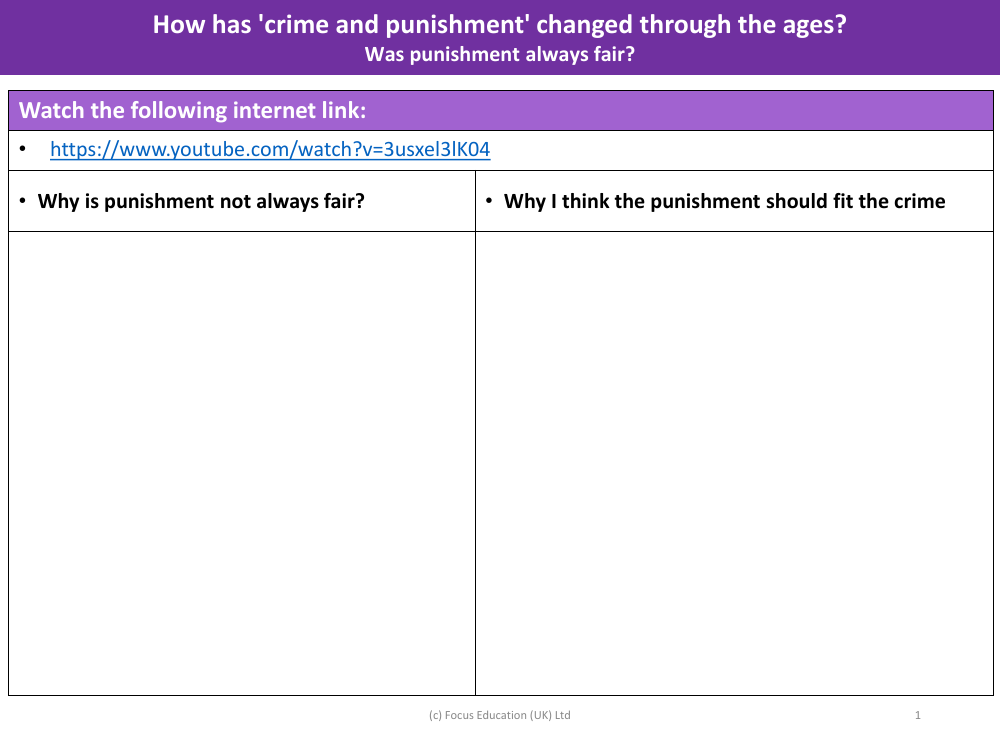Why is punishment not always fair and why it should fit the crime - Worksheet - Year 5

History Resource Description
The concept of fairness in punishment is a complex topic, and it is not always guaranteed that a punishment will be fair. There are various reasons why this might be the case. For instance, inconsistencies in legal systems, personal biases of those handing out the punishment, or societal inequalities can all lead to unfair penalties. Another aspect is the lack of proportionality between the crime committed and the punishment given. A fair system of punishment should ideally ensure that the severity of the penalty matches the seriousness of the crime, a principle known as 'let the punishment fit the crime'. This concept aims to provide justice by ensuring that the punishment is not excessively harsh or too lenient, but rather, it is appropriate and just for the offence committed.
Over the centuries, the approach to 'crime and punishment' has evolved significantly. In the past, punishments were often public and severe, with little regard for human rights or the principles of fairness and rehabilitation. Punishments were sometimes arbitrary and could be influenced by factors such as social status or corruption. As societies have developed, there has been a shift towards a more systematic and humane approach to justice. Today's legal systems aim to balance the need for punishment with the potential for rehabilitation, and there is an increased focus on the rights of the individual. However, the question of whether punishment has always been fair remains a topic for discussion and analysis, reflecting the changing values and norms of societies through the ages.



